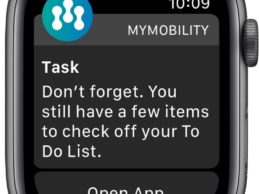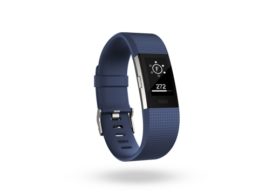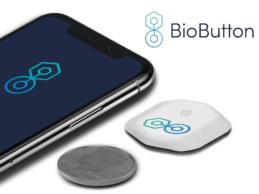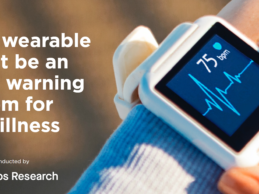What You Should Know:
- Anthem, Inc. announced a new study that examines how
the use of everyday devices, like Apple Watch and iPhone, may help individuals
with asthma, led by the University of California, Irvine.
- Launching in the fall, the two-year, randomized controlled
study will enroll participants from Anthem-affiliated health plans who have
been clinically diagnosed with asthma.
-Anthem, Inc. today a new study that examines how the use of everyday devices, like Apple Watch
Read More
Wearables in Healthcare| Medical Grade | News, Analysis, Insights - HIT Consultant
XRHealth Secures Patent to Incorporate Apple Watch into VR/AR Therapy
What You Should Know:
- XRHealth has just received a patent for its approach to
incorporate biofeedback from devices such as an Apple watch into its remote
healthcare therapy platform that utilizes virtual/artificial reality (VR/AR).
- XRHealth plans to incorporate their VR/AR therapy with the Apple Watch, specifically since the watch has advanced features including a medical-grade, FDA-cleared electrocardiogram (EKG) that measures heartbeat.
XRHealth, the
leader in extended
Read More
Fitbit Awarded Regulatory Clearance in U.S. and Europe for ECG App to Identify AFib
What You Should Know:
- Fitbit has received 510(k) clearance from the
FDA, as well as CE marking in the European Union, for its ECG
app to assess heart rhythm for atrial fibrillation. The Fitbit ECG App is a
simple way people can take an on-the-spot reading of their heart rhythm at any
time, including whenever they notice any unusual cardiac symptoms.
- Fitbit Sense is the company’s first device compatible
with an ECG app that enables users to take a spot
Read More
Zimmer & Apple Watch Transform Joint Replacement Virtual Care w/ App New Features
What You Should Know:
- Zimmer Biomet announced new features of mymobility with
Apple Watch® - bringing remote patient care to life for patients who receive
hip and knee joint replacement at the Worldwide Developers Conference (WWDC).
- Available later this year, mymobility with Apple Watch
will now use gait metrics (the stride of a person as s/he moves limbs) to
passively collect walking speed and double support time when walking on flat
level surfaces without GPS. These measurements
Read More
Fitbit Launches Study for Early Detection of COVID-19 and Flu
Wearable fitness leader Fitbit announced a new research study that will determine if it can build an algorithm to detect COVID-19, before symptoms even start. Now available in the Fitbit app, any Fitbit user in the U.S. and Canada who is over 21, especially those who currently have, or have had, symptoms consistent with COVID-19 or the flu, can participate - contributing to incredibly impactful research that will help Fitbit’s efforts to develop this algorithm. How to ParticipateIt is easy to
Read More
New Coin-Size Disposable Wearable Medical Device Enables COVID-19 Symptom Monitoring
What You Should Know:
- As the government guides state re-openings, digital health startup BioIntelliSense announced the newest advancements of its medical-grade biosensor solution portfolio and Data-as-a-Service (DaaS) platform.
- The company’s new COVID-19 Return to Work and School solution generates a more reliable clinical assessment of an individual’s infectious risk status through home-based screening tools and data-driven clearance
Read More
Fitbit, Scripps, Stanford to Study Role of Wearables to Detect, Train, and Contain Infectious Diseases
What You Should Know:
- Fitbit, Scripps Research, and Stanford Medicine are teaming up on new research leveraging Fitbit data to detect, track, and contain infectious diseases like COVID-19.
- There already has been early evidence that wearables, like Fitbit devices, have the potential to help predict the onset of an infectious disease like the flu before symptoms start, and the goal of this consortium is to unlock similar potential via leading research institutions in response to
Read More
Scripps Launches App-Based Study Using Wearable Data to Predict Virus Outbreaks
What You Should Know:
- The Scripps Research Translational Institute launched DETECT, an app-based research study that will analyze wearable data shared by users with the goal of being able to more quickly detect fast-spreading viral illnesses, like flu and coronavirus.
- Early detection is critical for effective public health response to infectious disease outbreaks and for improving treatments. DETECT connects with smartwatches and activity trackers, including Fitbit devices,
Read More
Element Science Nabs $145.6M to Commercialize Wearable Cardioverter Defibrillator
What You Need to Know:
- Element Science raises $145.6M in Series C funding to led by Deerfield Healthcare and Qiming Venture Partners USA, includes Cormorant Asset Management and Invus Opportunities.
- Funding will enable Element Science to complete clinical studies, begin U.S. commercialization of its digital wearable platform focused on high-risk cardiovascular patients transitioning from the hospital-to-home.
Element Science,
a San Francisco, CA-based innovative health
Read More
PhysIQ Expands Patent Portfolio for Artificial Intelligence Analytics in Wearables
- PhysIQ awarded patents for a game-changing deep net approach to estimating functional capacity daily from continuous wearable sensor data.
- PhysIQ’s adds yet another patent to its extensive portfolio on personalized physiology analytics powered by the similarity-based modeling machine learning approach.
PhysIQ continues to
receive recognition for the novelty and value of its technology with the
announcement of two new patent allowances by the US Patent & Trademark
Office on
Read More










